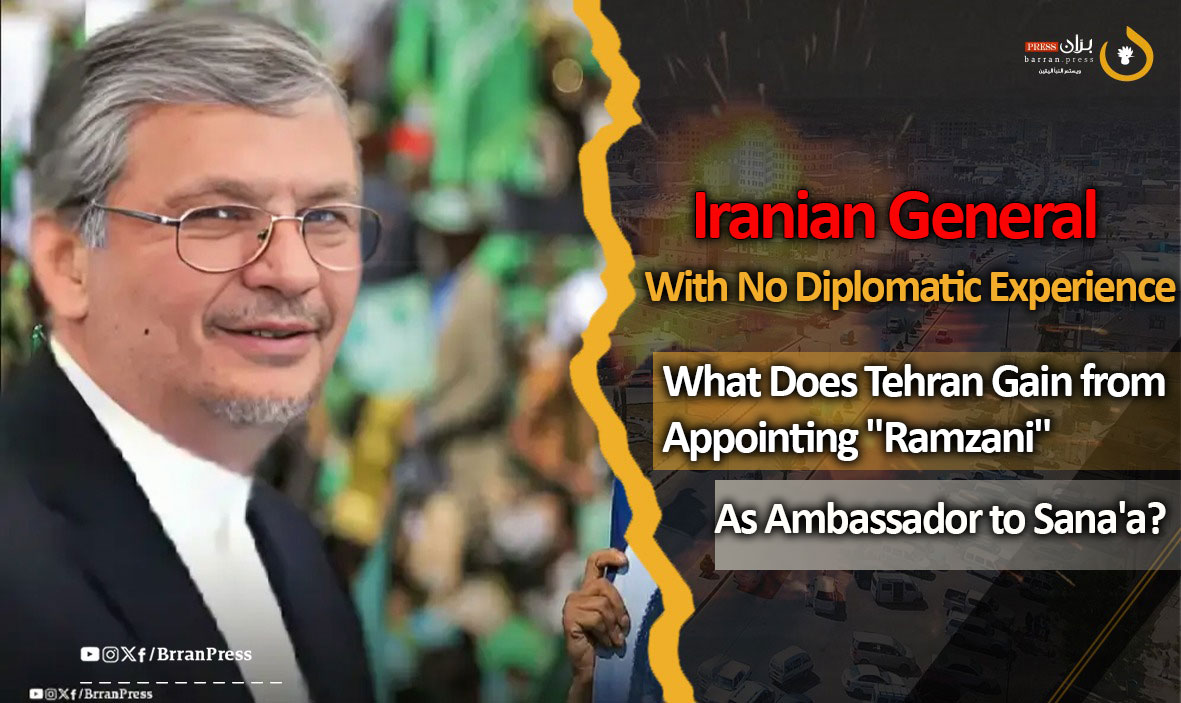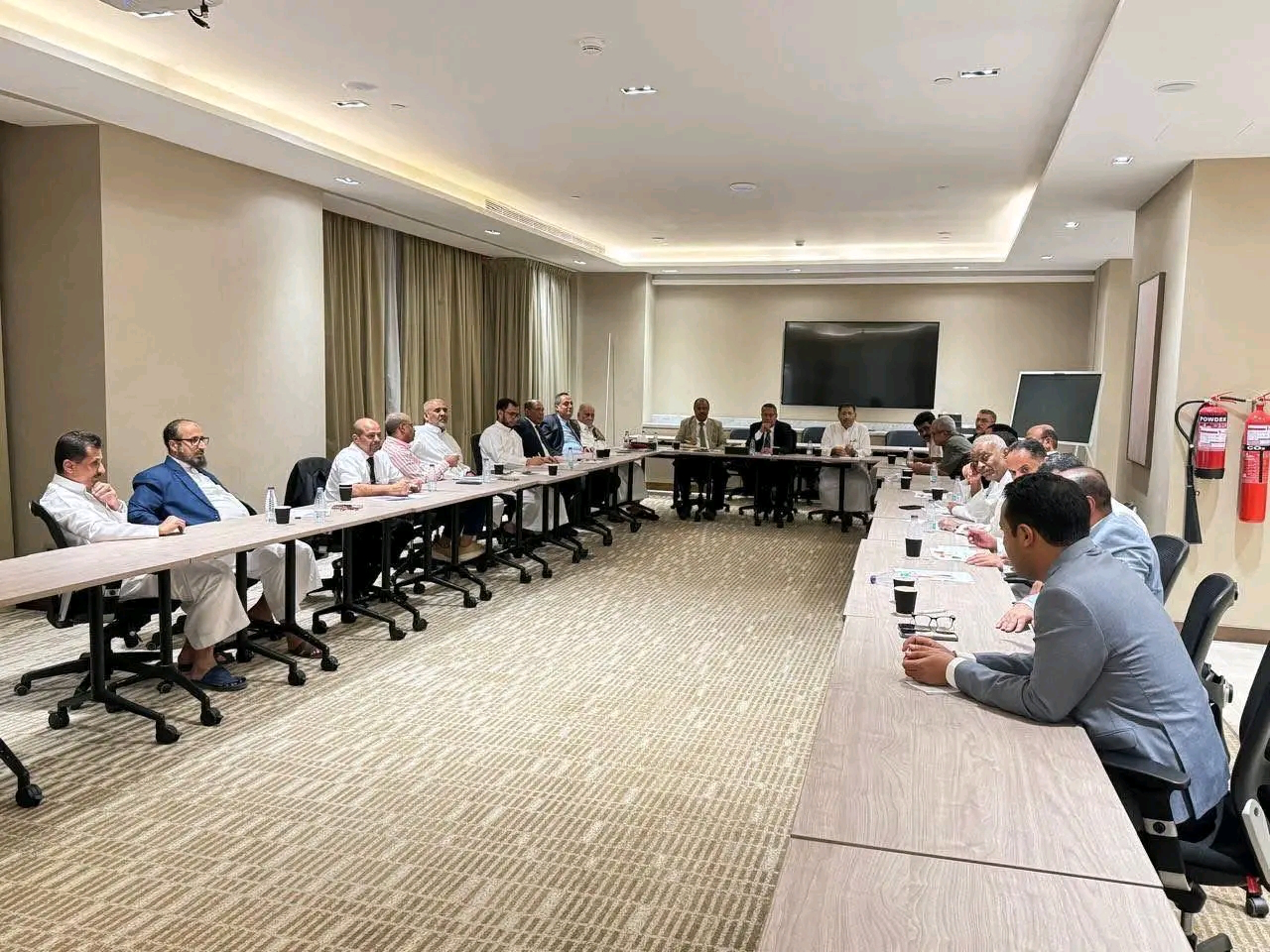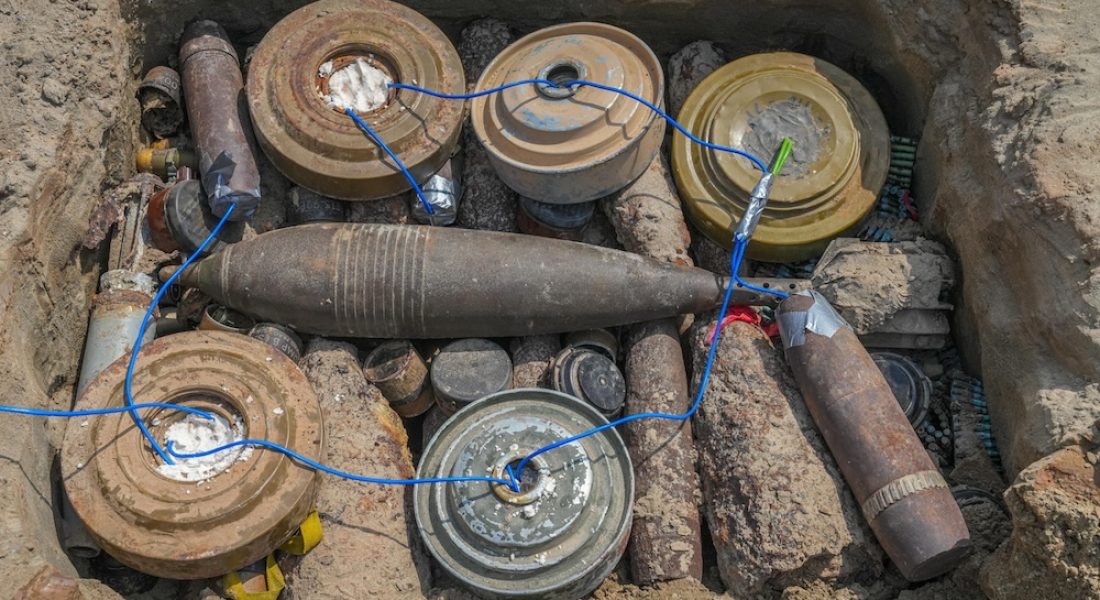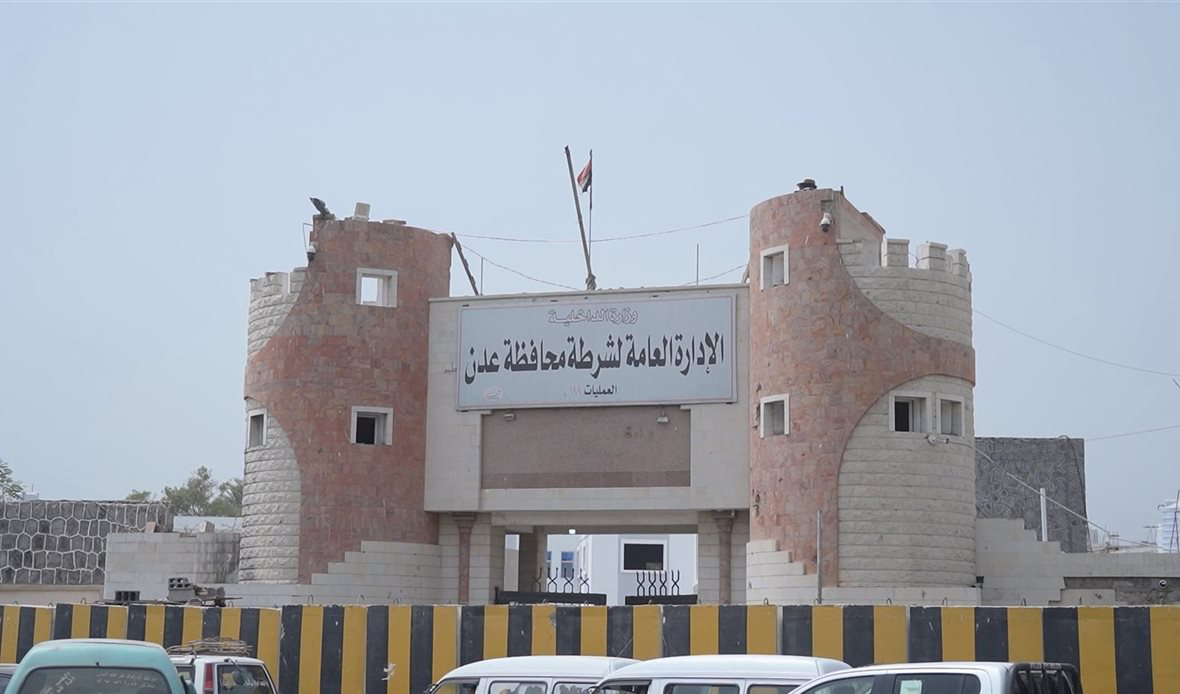
Bran Press | Report by HeshamTarmom
Amidst the flurry of international and regional efforts pushing for a peace roadmap in Yemen, the Houthi group, globally designated as a terrorist organization, announced the reception of a new Iranian ambassador, nearly three years after the death of the previous ambassador, who reportedly died on the battlefields of Marib.
This sudden move, especially in light of the Saudi-Iranian agreement and ongoing direct Houthi-Saudi negotiations, has raised many questions about its implications and impact on international efforts to end the war and establish peace in Yemen. It also raises questions about the future of the fragile UN-brokered truce that began in April 2022, as well as the options available to the Yemeni government and the Saudi-led Arab coalition supporting it.
A New Stage
Yemeni writer and researcher Ahmed Saleh Al-At'ati, speaking to Barran Press, described this move as a shift in Iranian influence from land expansion and control over four Arab capitals to maritime expansion.
He explained that it comes after several messages sent by Tehran indicating that the most important trade route connecting East and West, represented by the Red Sea and the Gulf of Aden, has become an area of Iranian influence through its arm in southern Arabia, represented by the Houthi group.
Therefore, he said that Tehran has moved to a new stage of support for the Houthi movement, culminating in the announcement of the appointment of its ambassador to the Houthis, preceded by a statement by the Iranian Supreme Leader on August 13th, broadcast on Iranian television, in which he said that Iran would support the Houthis by all means.
In his view, what has happened is the appointment of an Iranian commander to Yemen under the guise of an ambassador, explaining that Ramzani is a general in the air defense forces of the Islamic Revolutionary Guard Corps, and he has no connection to the Iranian Foreign Ministry, according to the Independent.
According to Al-At'ati, the military implications lie in the completion of Iranian positioning in Yemen, the southern entrance to the Red Sea and extending to the Horn of Africa, in addition to continuing to build the Houthi military capabilities to meet the requirements of Iranian dominance, especially the missile forces and drones, given that they are within the scope of the ambassador-commander's expertise.
Meanwhile, the political implications, according to the Yemeni researcher, are demonstrating absolute political support for the Houthis, and that they are part of the Iranian political and diplomatic system, and it tips the scales in Iran's favor.
In addition, Al-At'ati believes that this Iranian move is a clear message to Saudi Arabia that Sana'a will be in the Iranian balance of power and there is no place for Saudi Arabia there.
Reassurance and Containment
Adnan Hashem, a journalist, and researcher specializing in Iranian affairs, believes that appointing an ambassador to Sana'a is a confirmation of the Houthis' continued strengthening of their position as a spearhead for the axis at a time when Iran faces the risks of war. He points to the Houthi attacks in the Red Sea, which he says have strengthened the Houthis' position in the axis of resistance, and therefore in Iranian strategy.
In his opinion, the Houthis felt uncertain about their place within the Iranian axis after the Saudi-Iranian agreement brokered by China, so Tehran wanted to reassure them by appointing an ambassador.
On the other hand, the researcher told Barran Press that the Houthis are reckless, and therefore Iranian strategists view the Houthi group's confrontational approach as a source of danger and disturbance that could drag Iran into a war that Tehran is keen to keep away from its territory and avoid entering.
Therefore, Iranians, according to the researcher Adnan, believe that the presence of an ambassador who participates officially and directly on behalf of the new Iranian authority (mostly reformists) helps to reduce the intensity of the Houthis' rhetoric and prevent their country from being drawn into war. He considers the announcement by Iran's mission to the UN of the Houthis' agreement on the tanker (Soonion) as an indication of this.
In addition to the above, he considered this move is a message to the Gulf neighboring countries, indicating that abandoning the Houthis at this time has become difficult... This means that the understandings brokered by Beijing to alleviate the security problem between the two sides of the Gulf need to be reviewed by decision-makers in Tehran and Riyadh, according to the researcher.
Responding to Developments
Commenting on the timing and context of this move, writer and researcher Al-At'ati stated that it coincides with rising tensions between Iran and international powers, stemming from Iran's expansion of its influence from the Arabian Peninsula to the sea and targeting international shipping lanes.
In response to these developments, he explained that Iran, according to its known strategy based on the 'Um Al-Qura' theory, which asserts that the Islamic Republic should shift elements of tension, conflict, and danger from the direct targeting of Iran to conflict with allied arms and entities like the Houthis, Hezbollah, and the Popular Mobilization Forces, etc.
Al-At'aati highlighted the significance of the timing, stating that Tehran has completed the containment of the internal uprising that erupted at the end of 2022, which led it to sign a memorandum of understanding and restore relations with Saudi Arabia last year in an attempt to focus on the internal front and delay the appointment of a successor to its ambassador to the Houthi group, Hassan Irlu. This was further motivated by unifying its internal front with the election of a president with reformist leanings who is subject to the Revolutionary Guards.
He believes that Iran is now reassured about the internal front and has shifted its attention to the external front with an escalatory approach reflecting its confidence in its previous actions and its need to send a message to the region that it will be the sole player in northern Yemen.
Ramzani and Peace
Regarding the impact of this move on the peace roadmap and peace efforts in Yemen, Al-At'aati stated that it is an escalation and a clear stance that nullifies the current peace roadmap and considers it a thing of the past that has been overtaken by reality In his opinion, this comes according to the Iranian tactic of maneuvering until a new reality is created that surpasses the stage others are experiencing.
The researcher Al-At'aati predicts that this escalation will have a negative impact on the agreement with Saudi Arabia, which aimed to reduce elements of tension in Yemen.
He stated that Iran's true intentions are not directed towards peace, considering its talk of peace mere tactics that contradict its real actions to achieve further political and strategic gains at the expense of continued human suffering in Yemen.
He clarified that the ambassador has no connection to the Iranian Foreign Ministry or the government, he is a general working within the Air Defense Forces of the Revolutionary Guards, which is linked to the leadership of the revolution in Iran, and a member of the leadership of the Quds Force, tasked with controlling the Arab region through spreading chaos, overthrowing regimes, and expanding Iranian military, security, and political influence.
Different Perspectives
Adnan Hashem, a researcher in Gulf and Iranian affairs, ruled out the new Iranian ambassador to the Houthis having any impact on peace talks, stating that the Houthis' objectives are clear: they want all the land, oil and gas revenues, and most of the power.
Hashem added in his conversation with Barran Press that the Houthis feel they are in a much higher position than the internationally recognized government and want dialogue with parties and entities, not with the government, and will not abandon it. They are the ones who are hindering the path to peace, and no one else.
A Strategy of Expansion and Domination
The new ambassador is expected to oversee the expansion of Houthi military capabilities, enabling them to continue their campaign against Saudi Arabia, which Iran views as a major obstacle to its regional ambitions. This strategy, according to analysts, aims to further expand Iranian influence in the region and ultimately achieve regional dominance.
Yemeni Government's Response
The Yemeni government, recognized by the international community, has a number of options to counter Iran's move. These include leveraging its strong legal standing and international recognition to isolate the Houthis, relocating the central government from Sana'a to Aden, and intensifying diplomatic efforts to isolate the Houthi movement.
The government also has the option of employing military force, particularly by unifying and strengthening its military forces to prepare for a potential confrontation with Iranian-backed forces. The recent escalation of Iranian actions, including its aggressive diplomatic tactics and violation of international protocols, could provide leverage for the government to garner international support and pressure reluctant actors within the internationally recognized government.
No Saudi stance
Analysts have expressed concerns about the potential impact of this move on the Saudi-Iranian agreement. Yemeni political analyst, Abdul-Rahman Al-At'ati, believes that such an escalation will have a negative impact on the agreement, especially since one of its aims is to reduce tensions in Yemen. He also points out that Iran has expressed willingness to engage positively with any roadmap and has implicitly supported the Saudi and UN initiatives.
Regarding Saudi Arabia's stance, Al-At'ati suggests that the kingdom is adopting a patient approach toward Iran's regional behavior while maintaining a relatively firm stance against Iran's direct negative actions towards the kingdom. He believes that Saudi Arabia will make Iran's support for the UN-sponsored roadmap the litmus test for its behavior, which will determine the kingdom's future stance towards Iran.
According to Al-At'ati, Saudi Arabia is focused on achieving ultimate goals such as establishing peace and ensuring deterrence and protection against potential future threats. This, he argues, is being pursued through signing agreements and forging defense and security deals with major powers, while striving for absolute economic dominance in the region through the implementation of Vision 2030. He believes that this strategy will be an effective tool for attracting more protection and contributing to the defeat of competitors.
In contrast, Al-At'ati claims that Iran is focused on tactics, accumulating power elements to achieve dominance, and making progress on everything that was in the past or present.
Yemeni researcher Adnan Hashim, however, believes that Saudi Arabia is unlikely to issue an official statement on the matter. He argues that the kingdom currently considers itself a mediator and is part of an international effort to diplomatically pressure the Iranians to reduce the intensity of Houthi attacks in the Red Sea.
On August 27, 2024, the Houthi group revealed the identity of their new Iranian ambassador, shrouded in mystery regarding his arrival in the Houthi-controlled capital Sana'a.
On September 1, 2024, the Houthi group announced that their political council chairman, Mehdi al-Mashat, had received the new Iranian ambassador in Sana'a, identified as Ali Mohammad Ramzani. He replaces the previous ambassador, Hassan Eirloo, who died under mysterious circumstances in late 2021.
In March 2023, China announced the successful restoration of relations between Tehran and Riyadh after years of estrangement. The estrangement stemmed from Riyadh's accusations of Iranian interference in its internal affairs and support for armed militias to destabilize the region.





